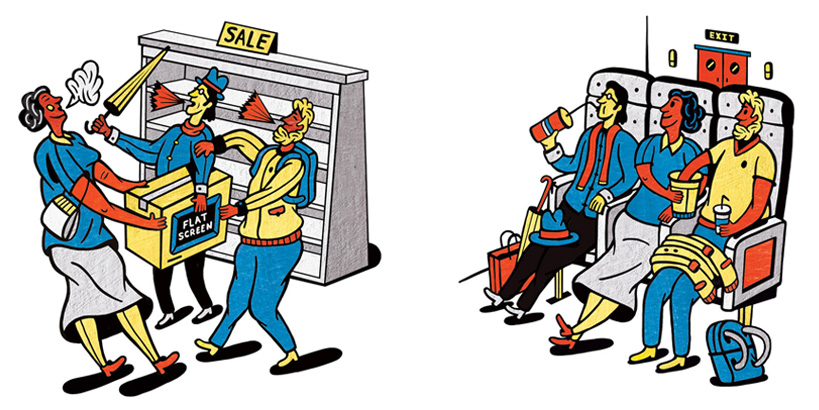Photo AI
Last Updated Sep 26, 2025
Centrality of Social Class: Historical Materialism and Revolutionary Change (Karl Marx and Friedrich Engels) Simplified Revision Notes for A-Level AQA Politics
Revision notes with simplified explanations to understand Centrality of Social Class: Historical Materialism and Revolutionary Change (Karl Marx and Friedrich Engels) quickly and effectively.
362+ students studying
7.3.1 Centrality of Social Class: Historical Materialism and Revolutionary Change (Karl Marx and Friedrich Engels)
Origins of Marxism
Marxism emerged due to two major historical events:
- Industrial Revolution: Transformed economic and social structures, leading to new class dynamics.
- French Revolution: Highlighted the power of collective action and class struggle.

Socialism
Marxism was influenced by the Hegelian dialectic, which emphasizes change as a result of conflicting ideas leading to new compromises.
Historical Materialism
- Marxism explains historical and social developments in terms of economic and class factors.
- The economic system shapes all aspects of society.
- Each historical stage is marked by intellectual and class conflict, leading to a new societal structure until the next wave of change.
Class Struggle as the Engine of History
- Marx and Engels believed that all historical development is driven by class conflicts over control of the means of production.
- This struggle between social classes is seen as the primary force behind social, economic, and political change.
Stages of Historical Development
Marx and Engels identified several stages of historical development, each defined by a dominant mode of production and class relations:
- Primitive Communism: Early communal societies with no class distinctions.
- Slave Society: Dominated by slave-owners exploiting enslaved people.
- Feudalism: Characterized by a land-owning aristocracy exploiting serfs.
- Capitalism: Defined by the bourgeoisie (capitalist class) exploiting the proletariat (working class).
- Socialism/Communism: The final stage, where the proletariat overthrows the bourgeoisie, leading to a classless society.
Dialectical Change
The Clash of Economic Interests
- Development occurs through the conflict between two opposing forces.
- At each stage of history, change is driven by the clash between exploiters and the exploited.
- This process only ends with the establishment of a communist society.
Dialectical Process in Capitalism
- The struggle between the bourgeoisie and the proletariat is a dialectical process.
- Capitalism's inherent contradictions—like labor exploitation and wealth concentration—create tensions that will eventually lead to its downfall and the emergence of socialism.
Class Consciousness
- Shared Class Consciousness: The proletariat must develop an awareness of their collective interests to overthrow their oppressors.
- "Class for Itself": The proletariat becomes aware of their shared exploitation and collective power, driving them to resist and aim for revolutionary change.
- Capitalism's Role: Capitalism fosters class consciousness, making a revolution necessary to replace it with socialism. This change cannot be achieved through liberal political systems.
Role of Ideology and the State
- Marx and Engels argue that the ruling class (bourgeoisie) uses ideology, culture, and the state to maintain control and prevent class consciousness among the proletariat.
- Institutions like education, religion, media, and politics serve as tools that reinforce capitalist values and norms, preserving the existing power structures.
Revolution as the Path to Socialism
- Once the proletariat develops revolutionary class consciousness, they become the leading force in the struggle to overthrow capitalism.
- Revolution is necessary to dismantle the bourgeoisie's control over the means of production and establish a socialist society where the working class governs.
Marxist-Leninism
- Lenin's View: Revolution and dictatorship could only occur where capitalism and the proletariat were developed.
- Revolution in Pre-Industrial Countries: Lenin argued that early revolutions could prevent masses from adopting capitalist values.
- Revolutionary Elite: Lenin emphasized the need for a revolutionary elite to guide the movement.
Critique of Hegel
- Marx was inspired by Hegel but disagreed on key points:
- Hegel's dialectic emphasized abstract concepts (art, religion, philosophy), while Marx focused on material conditions.
- Hegel identified human suffering but did not offer practical solutions.
Revolution of 1848
- Marx viewed the European revolutions as an opportunity for direct involvement in revolutionary change.
- He aimed to provide daily guidelines for action and critical analysis of the existing social order.
In a Communist Society
- Abolition of Private Property: Ownership is communal, eliminating class distinctions.
- Class Abolition: Class differences and exploitation are eradicated.
- Unified Labor: Divisions between mental and physical labor are abolished, promoting equality in work.
500K+ Students Use These Powerful Tools to Master Centrality of Social Class: Historical Materialism and Revolutionary Change (Karl Marx and Friedrich Engels) For their A-Level Exams.
Enhance your understanding with flashcards, quizzes, and exams—designed to help you grasp key concepts, reinforce learning, and master any topic with confidence!
20 flashcards
Flashcards on Centrality of Social Class: Historical Materialism and Revolutionary Change (Karl Marx and Friedrich Engels)
Revise key concepts with interactive flashcards.
Try Politics Flashcards2 quizzes
Quizzes on Centrality of Social Class: Historical Materialism and Revolutionary Change (Karl Marx and Friedrich Engels)
Test your knowledge with fun and engaging quizzes.
Try Politics Quizzes29 questions
Exam questions on Centrality of Social Class: Historical Materialism and Revolutionary Change (Karl Marx and Friedrich Engels)
Boost your confidence with real exam questions.
Try Politics Questions27 exams created
Exam Builder on Centrality of Social Class: Historical Materialism and Revolutionary Change (Karl Marx and Friedrich Engels)
Create custom exams across topics for better practice!
Try Politics exam builder9 papers
Past Papers on Centrality of Social Class: Historical Materialism and Revolutionary Change (Karl Marx and Friedrich Engels)
Practice past papers to reinforce exam experience.
Try Politics Past PapersOther Revision Notes related to Centrality of Social Class: Historical Materialism and Revolutionary Change (Karl Marx and Friedrich Engels) you should explore
Discover More Revision Notes Related to Centrality of Social Class: Historical Materialism and Revolutionary Change (Karl Marx and Friedrich Engels) to Deepen Your Understanding and Improve Your Mastery
96%
114 rated
Marx and Engels - Key Ideas (1818–83) & (1820–95)
Social Nature and Communism (Karl Marx and Friedrich Engels)
492+ studying
198KViews